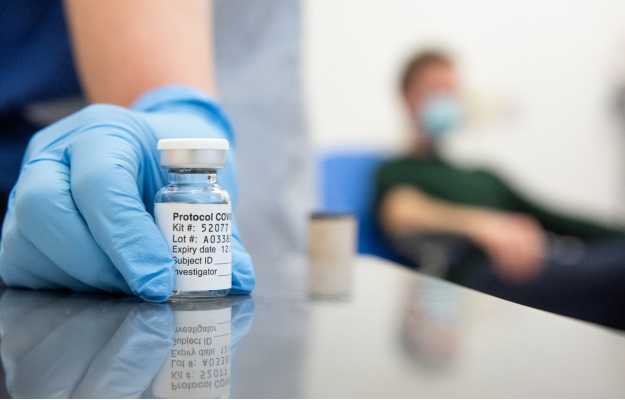Oxford University on Monday (23 November 2020) said that its COVID-19 vaccine candidate ChAdOx1 nCoV-19 vaccine (AZD1222) is 90% effective when given in two doses: half a dose, followed by one full/standard dose.
The finding is based on interim data from phase 3 trials which measured the efficacy of two different dosage regimes administered across 24,000-plus participants—the data showed 70.4% efficacy across the two dosage regimens (the other regimen—two full doses—was effect 62% of the time).
In a news release, Oxford University said that according to “early indication”, the vaccine can reduce virus transmission (measured by the reduction in asymptomatic infections). There were also no reported cases of hospitalisation or severe COVID-19 among participants during the trial period.
Additionally, it said, India is one of the countries where trials are expected to start next, before the end of 2020.
























